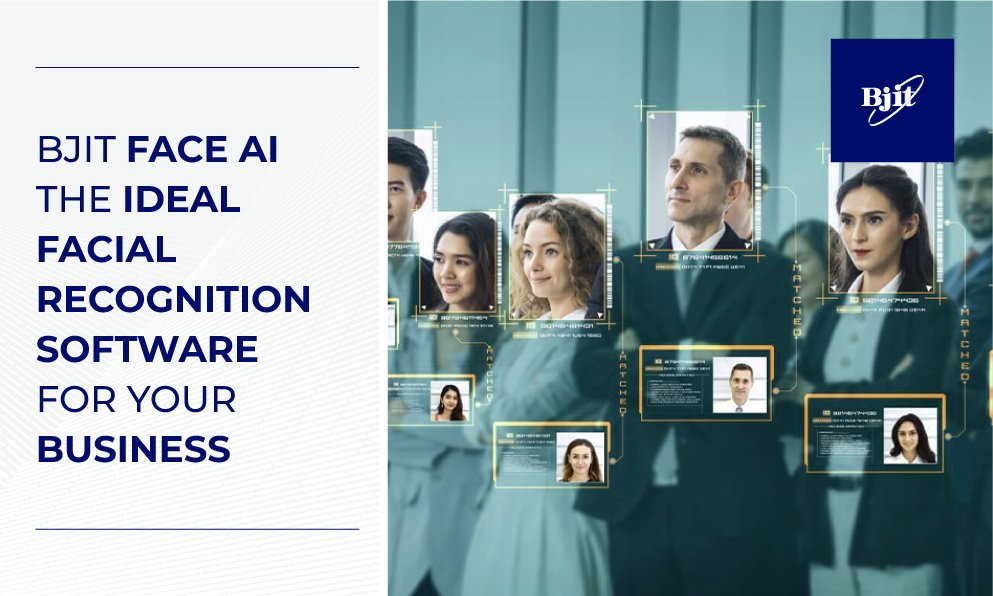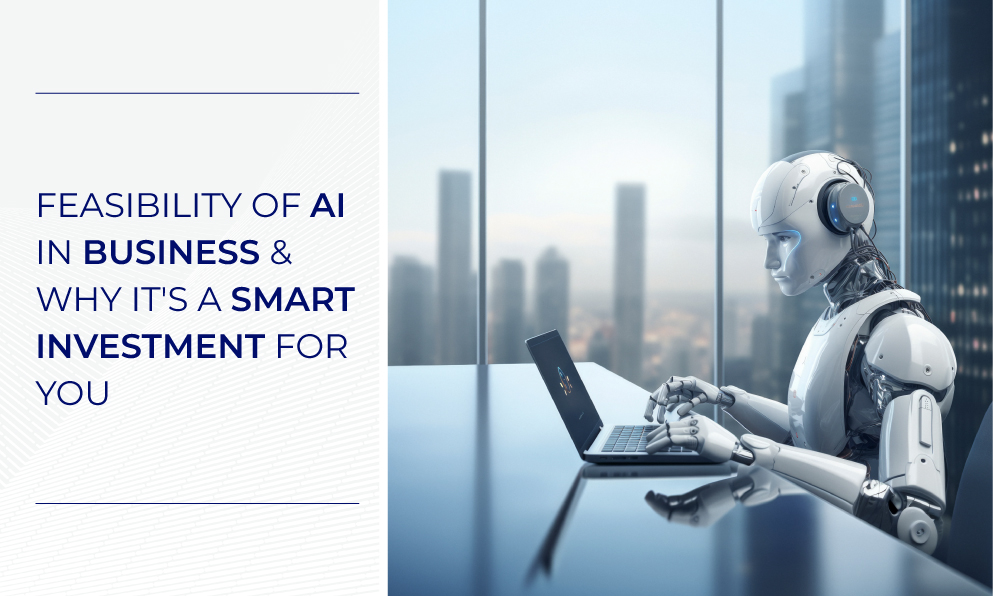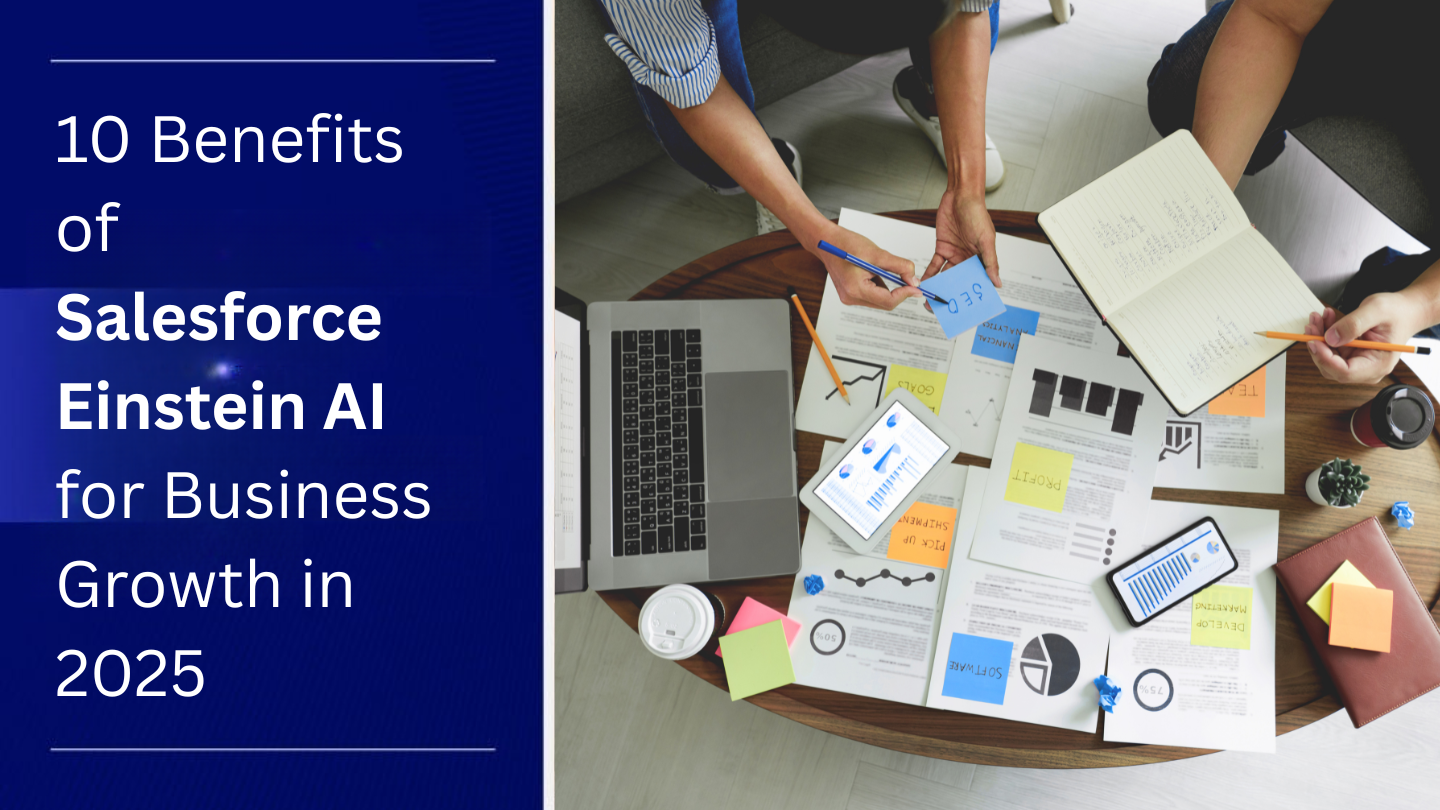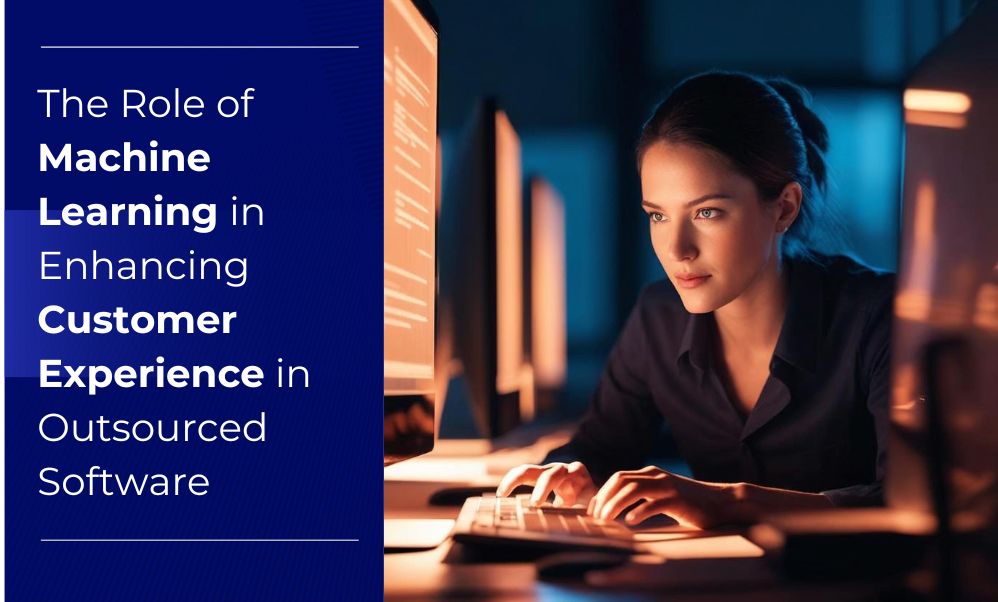Imagine walking into a store where your preferences are instantly recognized, personalized recommendations are made, and checkout is seamless. Facial recognition in retail stores is no longer a concept of the future—it's happening now. This advanced technology is revolutionizing how we shop, enhancing customer experiences, and improving operational efficiencies.
The integration of facial recognition technology in retail stores, such as FaceAI by BJIT, is setting new standards in customer service and operational efficiency.
The Importance of Facial Recognition in Retail
Enhancing Customer Experience
One key benefit of face recognition technology in retail businesses is a significantly improved customer experience. Retailers may use this technology to identify repeat consumers, recall their preferences, and deliver tailored service. For example, face recognition can assist in determining a customer's buying history, allowing store personnel to modify product suggestions. This degree of customization may boost client happiness and loyalty.
Boosting Operational Efficiency
Face recognition technology is a game-changer for retail companies looking to streamline their operations. It may simplify inventory, personnel, and even security. By studying customer behavior and foot traffic, shops may improve their inventory management, optimize store layouts, and cut down on theft. Proper resource allocation leads to cost savings and enhanced profitability, and real-time monitoring of store activity ensures this.
What Are The Privacy Concerns?
Ensuring Data Security
Despite the substantial advantages of facial recognition in retail stores, addressing the privacy concerns associated with this technology is imperative. Retailers are responsible for guaranteeing that the data they collect is maintained securely and utilized responsibly. Implementing strong data protection measures and being transparent about the use of consumer data can help to build trust and allay privacy concerns. Clear communication regarding data usage policies and the acquisition of customer consent are indispensable procedures.
Legal and Ethical Considerations
Legal and ethical considerations must be considered in addition to data security. Local and international regulations concerning the utilization of facial recognition technology require retailers to adhere to them. This encompasses guaranteeing that customers' rights are upheld and that the technology is not employed for discriminatory purposes. Retailers can effectively and responsibly utilize facial recognition technology by adhering to ethical practices and legal standards.
Transforming the Retail Landscape
Personalization and Customer Loyalty
Retailers may now implement facial recognition technology to provide consumers with a more personalized purchasing experience. Retailers may enhance client loyalty by acquiring information regarding their preferences and employing that information to offer personalized incentives and rewards.
Customers with a positive, customized purchasing experience are more likely to be content and return for multiple purchases. Retailers' implementation of facial recognition technology has the potential to enhance the quality and memorability of their customers' purchasing experiences, thereby fostering loyalty and increasing sales.
Enhanced Security Measures
Another substantial consequence of facial recognition technology in retail stores is the improvement of security measures. This technology has the potential to detect prospective shoplifters and avert larceny before it occurs. By incorporating facial recognition into their existing security systems, retailers can establish a safer purchasing environment for both consumers and employees.
FaceAI improves security by offering real-time alerts and monitoring capabilities. These assist retailers in safeguarding their assets and guaranteeing a secure purchasing experience. Additionally, the ability to monitor and analyze consumer behavior in real-time enables a more rapid response to security incidents, thereby reducing losses and enhancing the overall security of the store.
Implementing Facial Recognition Technology
Steps to Integration
Implementing facial recognition technology in retail stores involves several key steps. First, retailers must choose the right technology provider with reliable and accurate solutions. Next, training staff on how to use the technology effectively and ethically is essential. This includes educating employees about data privacy and security measures.
Finally, retailers must monitor and evaluate facial recognition performance to meet operational and customer service goals. FaceAI by BJIT offers comprehensive support throughout the implementation process, ensuring a smooth transition and effective utilization of the technology.
Overcoming Challenges
Although the advantages of facial recognition technology are evident, retailers may encounter obstacles during the implementation process. These may encompass technical difficulties, legal obstacles, and consumer resistance. To surmount these obstacles, retailers must collaborate with technology providers to guarantee seamless integration and promptly resolve technical issues.
BJIT offers continuous support and training to FaceAI users, assisting retailers in surmounting obstacles and optimizing the technology's advantages. Furthermore, customers can mitigate resistance by being provided with information regarding facial recognition's advantages and security protocols. To achieve successful implementation, it is essential to remain informed about legal requirements and ensure compliance.
How BJIT's FaceAI Revolutionizing Retail with Advanced Facial Recognition
With FaceAI, our cutting-edge facial recognition technology designed for the retail sector, BJIT boldly displays. FaceAI uses artificial intelligence to improve operations, customer experiences, and security.
Personalized Customer Experiences
FaceAI helps stores provide customized shopping environments. It improves customer satisfaction and loyalty by identifying repeat users and their preferences, enabling targeted recommendations and promotions.
Enhanced Operational Efficiency
FaceAI offers retailers valuable insights into consumer behavior and foot traffic patterns. These insights aid in optimizing store layouts, managing inventory, and allocating staff, resulting in increased profitability and cost savings.
Robust Security Features
By spotting possible shoplifters and alerting security staff in real-time, FaceAI improves store security. FaceAI integration with current security systems guarantees enhanced asset protection and a safer retail environment.
Seamless Integration and Support
BJIT ensures a smooth transition with FaceAI, offering comprehensive support from setup to staff training. Our ongoing assistance helps retailers overcome challenges and maximize the benefits of FaceAI.
Data Privacy and Compliance
FaceAI is designed with robust data protection measures, ensuring secure and ethical customer data handling. BJIT prioritizes transparency and compliance with data protection regulations.
Why Choose FaceAI?
- Advanced AI Technology: Take advantage of the latest advancements in AI, FaceAI offers precise and reliable facial recognition.
- Customizable Solutions: Tailored to meet each retailer's unique needs, FaceAI can be customized for optimal performance.
- Comprehensive Analytics: Gain valuable insights into customer behavior and store operations with detailed analytics and reporting features.
- Enhanced Customer Experience: Deliver personalized and engaging shopping experiences that build customer loyalty.
- Improved Security Measures: Protect your store and customers with advanced security features and real-time alerts.
- Reliable Support: Benefit from BJIT’s dedicated support team, ensuring seamless integration and ongoing success.
FAQs
How does facial recognition technology work in retail stores?
Facial recognition technology in retail stores captures and analyzes facial features using cameras and software. The technology creates a unique digital representation of a person's face, which can be compared to a database of known faces to identify individuals.
Is facial recognition technology safe to use in retail?
Facial recognition technology can be safe for retail if retailers implement robust data security measures and comply with privacy regulations. Ensuring transparency and obtaining customer consent are critical for maintaining trust and protecting personal data.
What are the benefits of using facial recognition in retail stores?
The benefits of using facial recognition in retail stores include an enhanced customer experience, improved operational efficiency, and increased security. This technology allows for personalized service, better inventory management, and the prevention of theft.
How can retailers address privacy concerns with facial recognition technology?
Retailers can address privacy concerns by implementing strong data protection measures, being transparent about data usage, and obtaining customer consent. Complying with legal and ethical standards is also essential for building trust and ensuring responsible use of technology.
Conclusion
Facial recognition technology has a significant and wide-ranging impact on retail establishments. This technology completely changes the retail industry by tightening security measures, increasing operational efficiencies, and improving consumer experiences. To utilize facial recognition ethically, retailers must handle privacy concerns and adhere to legal and ethical norms.
BJIT's faceai is leading this change, giving retailers the resources they need to thrive in the quickly changing retail landscape. The potential for facial recognition in retail establishments will only increase as technology develops further, presenting fresh chances for creativity and enhancement of the shopping experience.











